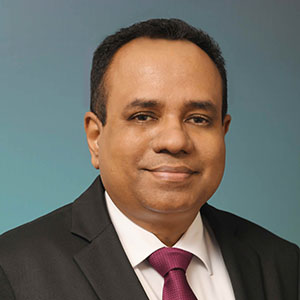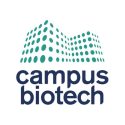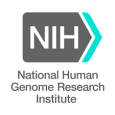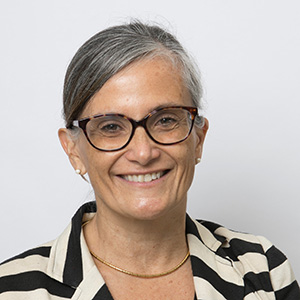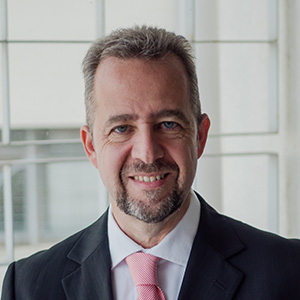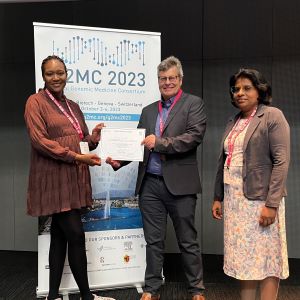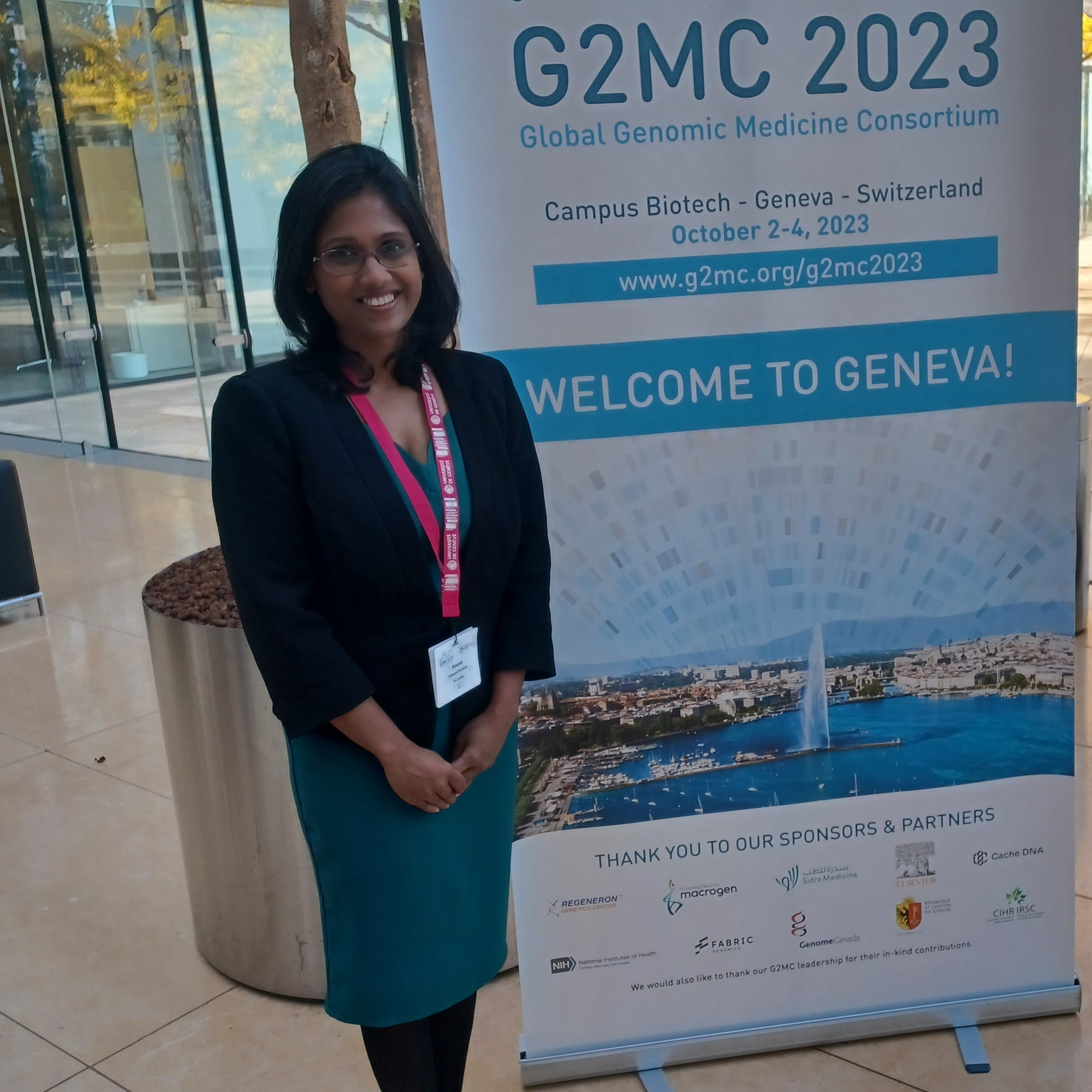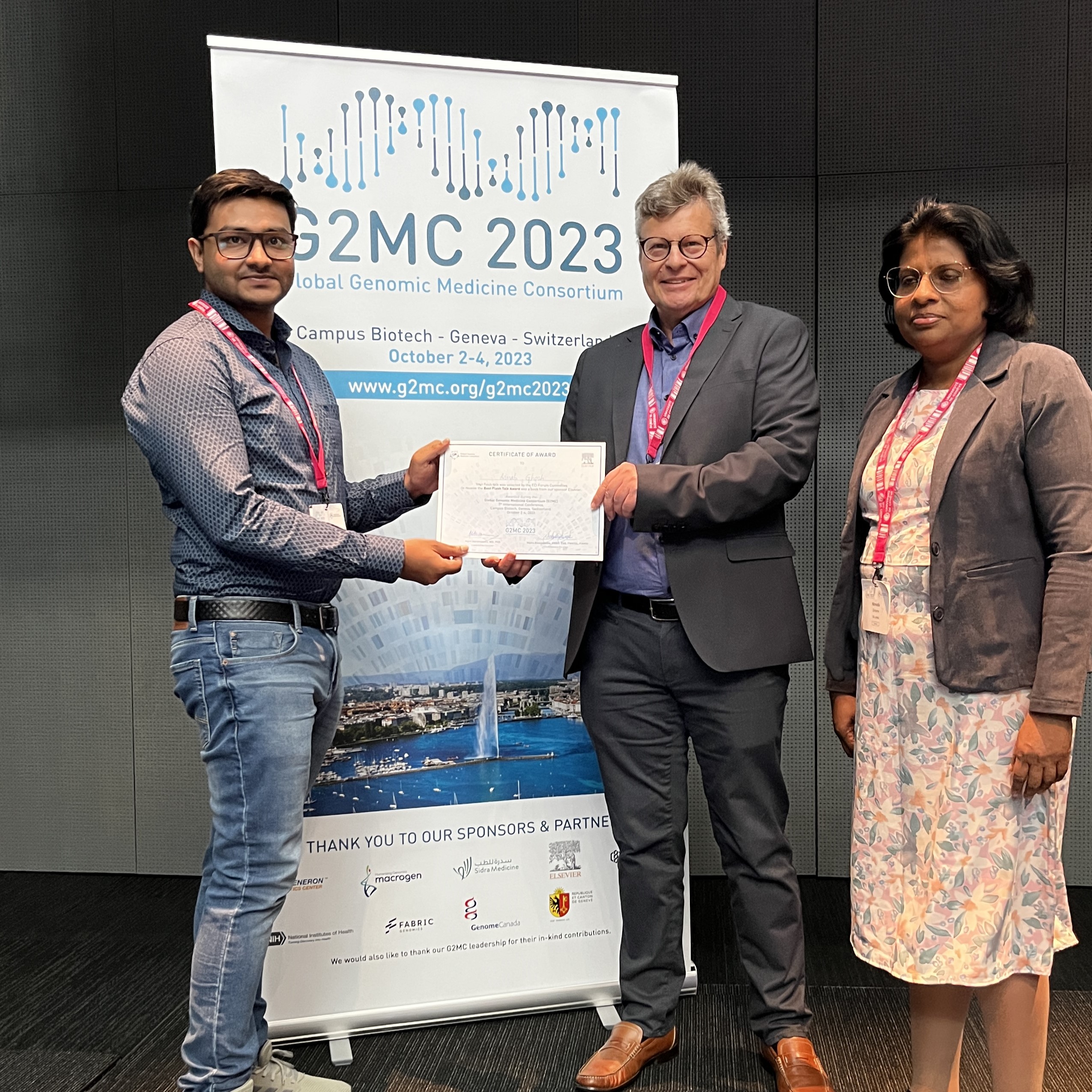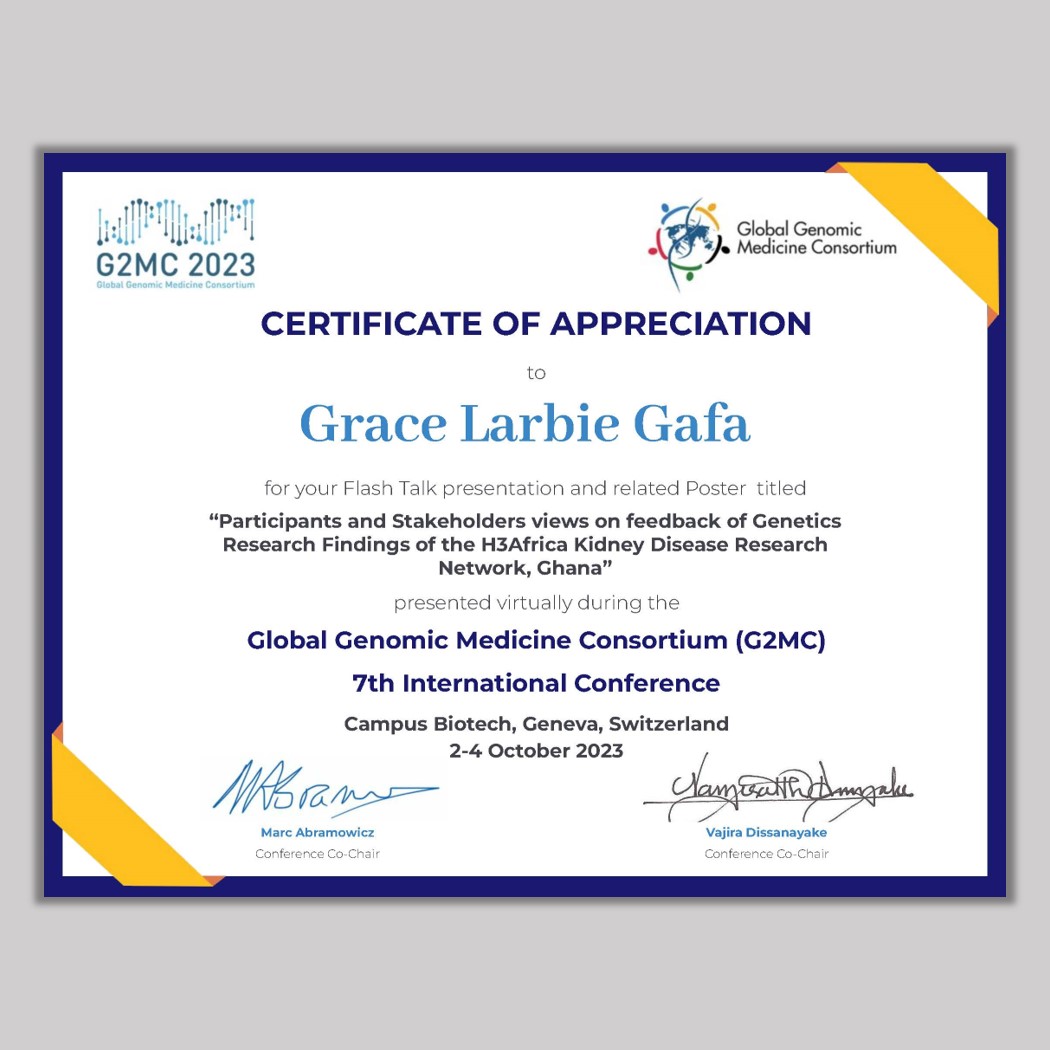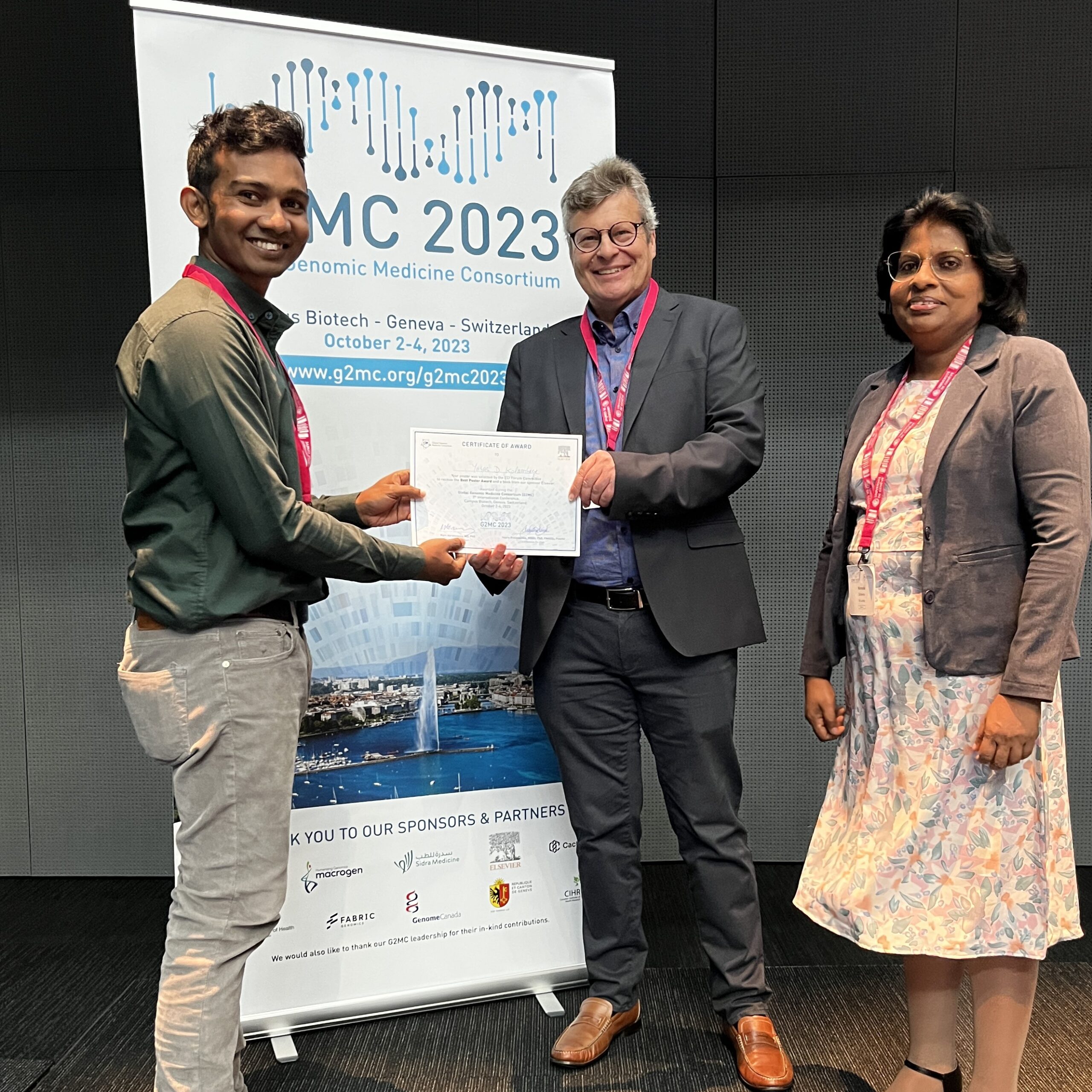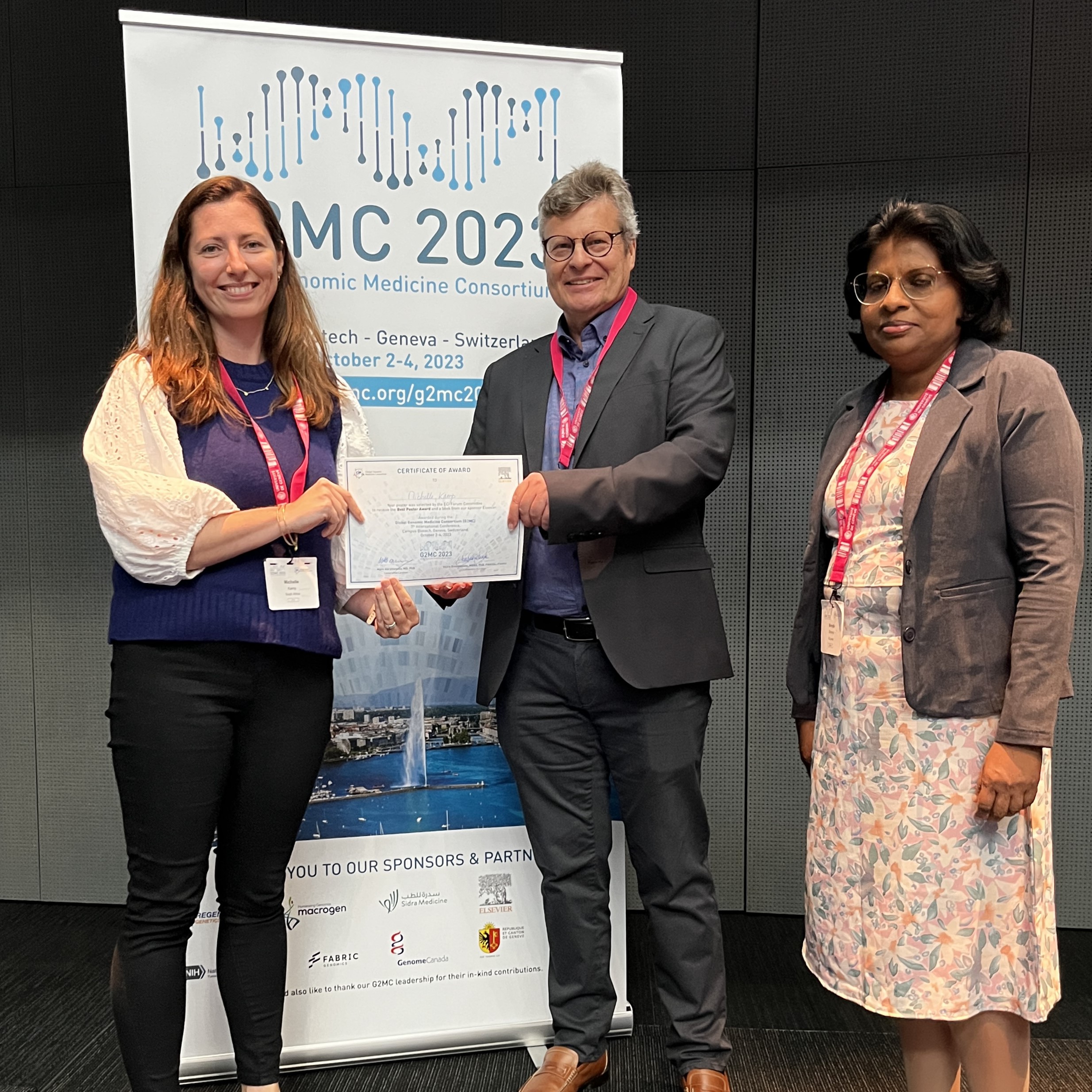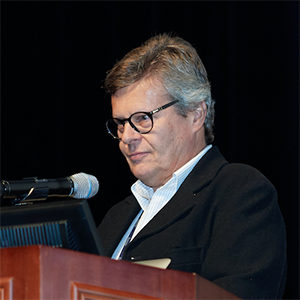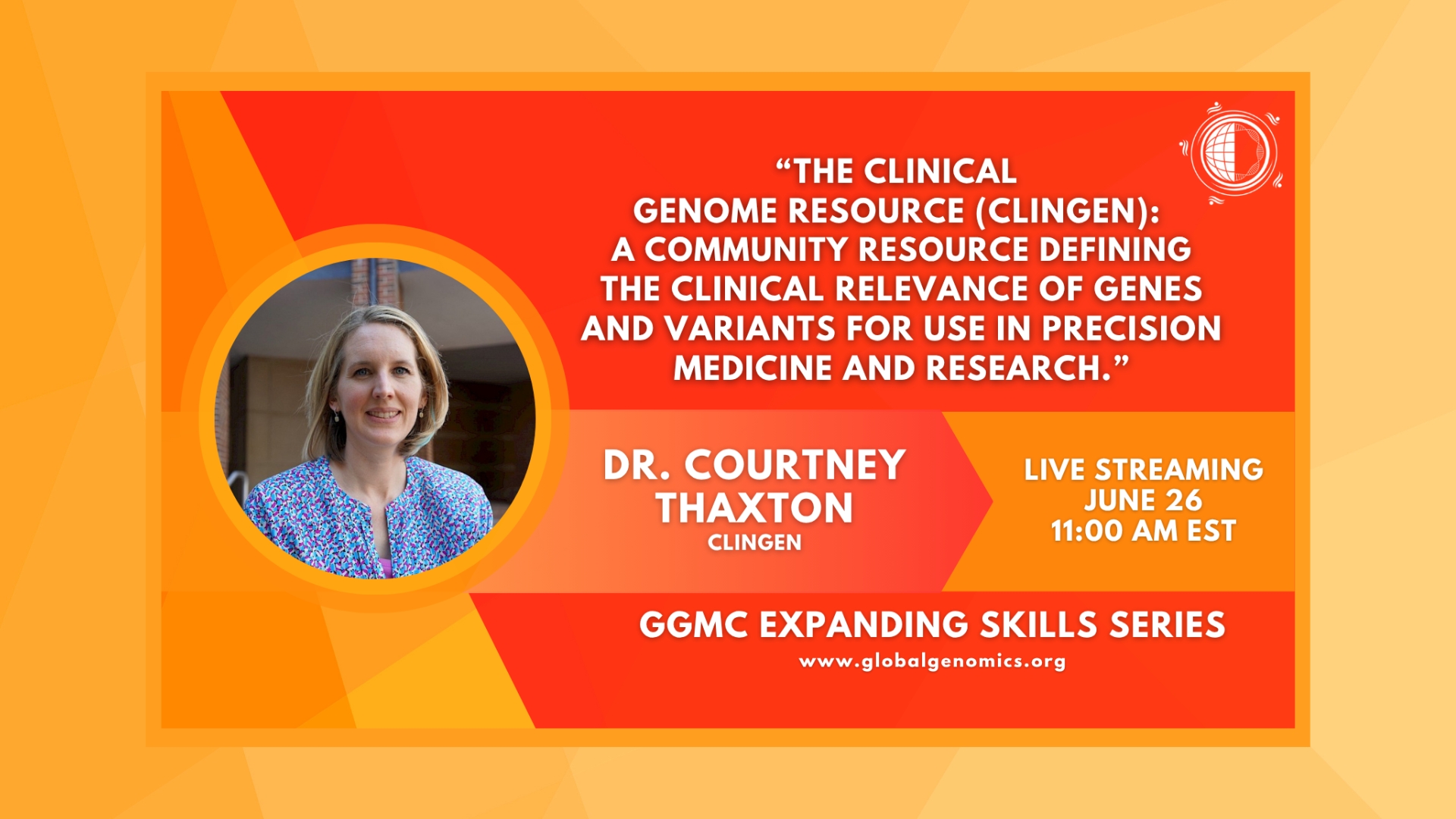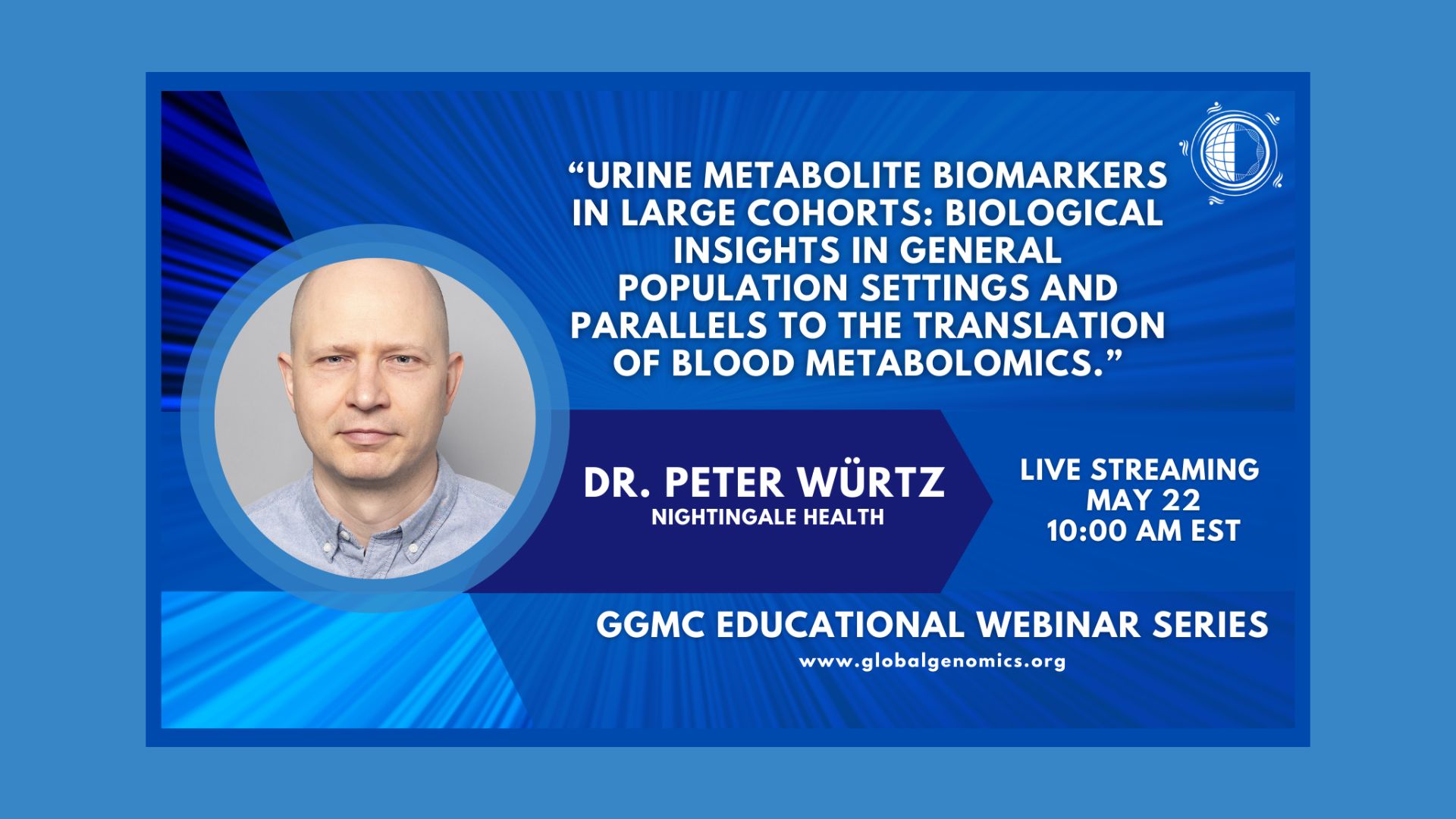We are pleased to have successfully concluded the G2MC 7th International Conference that took place October 2-4, 2023 in Geneva, Switzerland, and online for those who were unable to attend in person. We had a total of 225 registrants (86 in person and 139 online) representing 49 countries, of which 33 were low and middle-income countries (LMICs).
“The diversity represented at the conference, in terms of demographics, areas of expertise, and career stages, was outstanding,” said G2MC Chair George Patrinos, PhD, who has been involved with G2MC since the first G2MC international conference in 2014. “Each conference continues to grow in diversity and attendance, especially with participants from low and middle-income countries, and we are pleased to continue to cultivate our Early Career Investigator involvement as well.”
Growing the Future of Genomic Medicine
As part of the conference, a total of 22 Early Career Investigators (ECIs) showcased their impressive work through podium presentations, flash talks, and posters. ECIs represented 16 countries, of which 11 were LMICs. The conference also included a career panel discussion and allowed for many opportunities for networking as well, and we want to applaud the fantastic interactions between our mentors and our ECIs in moving their projects forward and sharing their expertise and tips.
“Conferences are a great place for ECIs to network and connect with experts in the field,” said Pratiksha Gyawali, MBBS, MD, Assistant Professor at Kathmandu University, Nepal. Dr. Gyawali was part of the conference planning committee, representing ECIs, and also presented during the conference on her work expanding genomic medical services in Nepal. “In my country, the infrastructure and expertise around genomic medicine is very limited. There is a gap between what is in the text book and what is being implemented, and it’s important that we teach our next generation of leaders in the field so that countries like Nepal don’t fall behind. Bringing together ECIs from all over the world gives them an opportunity to learn what is being done in other countries.”
We are excited to continue building on this momentum to further foster the growth of the future leadership of genomic medicine implementation. This includes involving ECI representatives on all of our G2MC functional groups, and establishing educational and mentorship opportunities as part of our core functions.
Sharing Challenges, Identifying Opportunities and Solutions
As we built the conference around the WHO Science Council’s 2022 report on accelerating access to genomics for global health, we had extraordinary talks that demonstrated the power of global collaboration involving LMICs and the implementation of genomic medicine in different settings. We had an expert lineup of 23 speakers representing 13 countries, of which eight were LMICs.
Day one keynote speaker, Jeremy Farrar, PhD, Chief Scientist of WHO, Switzerland, spoke of the importance of thinking horizontally when it comes to genomic medicine, investing and planning for long-term research, 10-15 years in the future, what this landscape will look like and what we need to do to get there.
“Science requires investment over the long-term, as demonstrated by the COVID pandemic where research in RNA discovery began 30 to 40 years ago, which allowed for the rapid introduction of the vaccine during the COVID outbreak,” Dr. Farrar stated. “The same thing is especially true for the genetics and genomics community. We must think parallel – not in sequence. We can’t just focus on the science and technology, but also our engagement of people and institutions, regulations, ethics, and public involvement. Think about the progress G2MC has made during its 11 years in existence, and think ahead another 10 years to 2030 or 2040. How can we accelerate this progress, anticipating the changes and needs rather than reacting?”
Day three keynote speaker Professor Collet Dandara, PhD, with the University of Cape Town, South Africa, as well as the other speakers from our last session on Equity and Global Access (DEI), highlighted some of the challenges, opportunities, and initiatives of integrating genomic medicine implementation in LMICs. The session provided significant lessons learned and shined a light on opportunities for moving forward.
“Education and training is a critical component of genomic medicine implementation, and it’s critical that we not only diversify our learners, but we diversify our research in genetics and genomics, said conference speaker Vicky Nembaware, PhD, with the University of Cape Town, South Africa, and the African Society of Human Genetics. “More implementation research is needed in African genomics, for example, because there are many rare variants that occur within African populations. If we can increase training and understanding of African genomics, we are not only helping African populations, but also the global population.”
Demonstrating the Power of Working Together
“Each session and portion of the conference was well thought out and strategically planned by our scientific planning committee around advancing genomic medicine and making it available to everyone,” said G2MC Interim Co-Chair Bruce Korf, MD, PhD.
“As noted by the American Society of Human Genetics in its 2023 annual meeting, we are one humanity,” Dr. Korf said during the closing remarks. “One humanity with many genomes, many healthcare systems, many health priorities, many educational projects, and many implementation efforts. G2MC is in an excellent position to bring these efforts and initiatives together so that globally we are collaborating as one team. Moving forward, we must continue to train and expand our workforce, mentor our future leaders, define best practices, advance our approaches, and raise awareness about the importance of genomic medicine implementation in every part of the world.”
We would like to sincerely thank all those who made the G2MC 7th International Conference a success. You can view the full conference e-booklet here. We will also post materials on the event page, including presentations and recordings as they’re processed.


